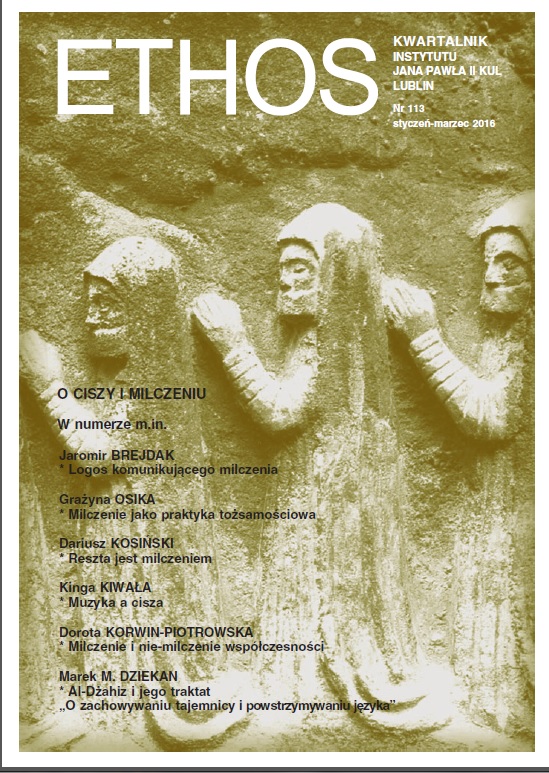Milczenie jako ucieleśniona praktyka tożsamościowa
Not Speaking as an Embodied Identity-Building Practice
Author(s): Grażyna OsikaSubject(s): Individual Psychology, Psychology of Self, Ontology
Published by: Katolicki Uniwersytet Lubelski Jana Pawła II - Instytut Jana Pawła II, Wydział Filozofii
Keywords: silence; personal identity; identity practice; communication; proprioception; Maurice Merleau-Ponty;
Summary/Abstract: This article focuses on the role of silence in building personal identity. Humans intuitively feel that there is a relation between silence and self-identity, and different kinds of spiritual practices pursued everywhere in the world prove the permanence of this conviction. It seems that there is a good reason to try and understand the basis of the relation between silence and self-identity by seeking the answer to the question of what happens when we cease talking and what allows us to ‘look deeper in our selves.’ In the present considerations silence is defined as abstaining from speaking. As such, it creates a space that helps the human being open up to various types of experiencing the world and the self, without recourse to words.The approach used throughout the analyses rests on the assumption that the body, in particular embodied proprioception, an unmediated experience of the body’s internal sense of itself, is a decisive factor in establishing the human self. Proprioception reveals the layers of identity which in everyday experience are hidden either by the words spoken by others or in the internal dialogue with oneself. The article describes how proprioception is a basic source of self knowledge accessible as a result of a conscious practice of silence.
Journal: Ethos. Kwartalnik Instytutu Jana Pawła II KUL
- Issue Year: 29/2016
- Issue No: 1
- Page Range: 36-46
- Page Count: 11
- Language: Polish
- Content File-PDF

